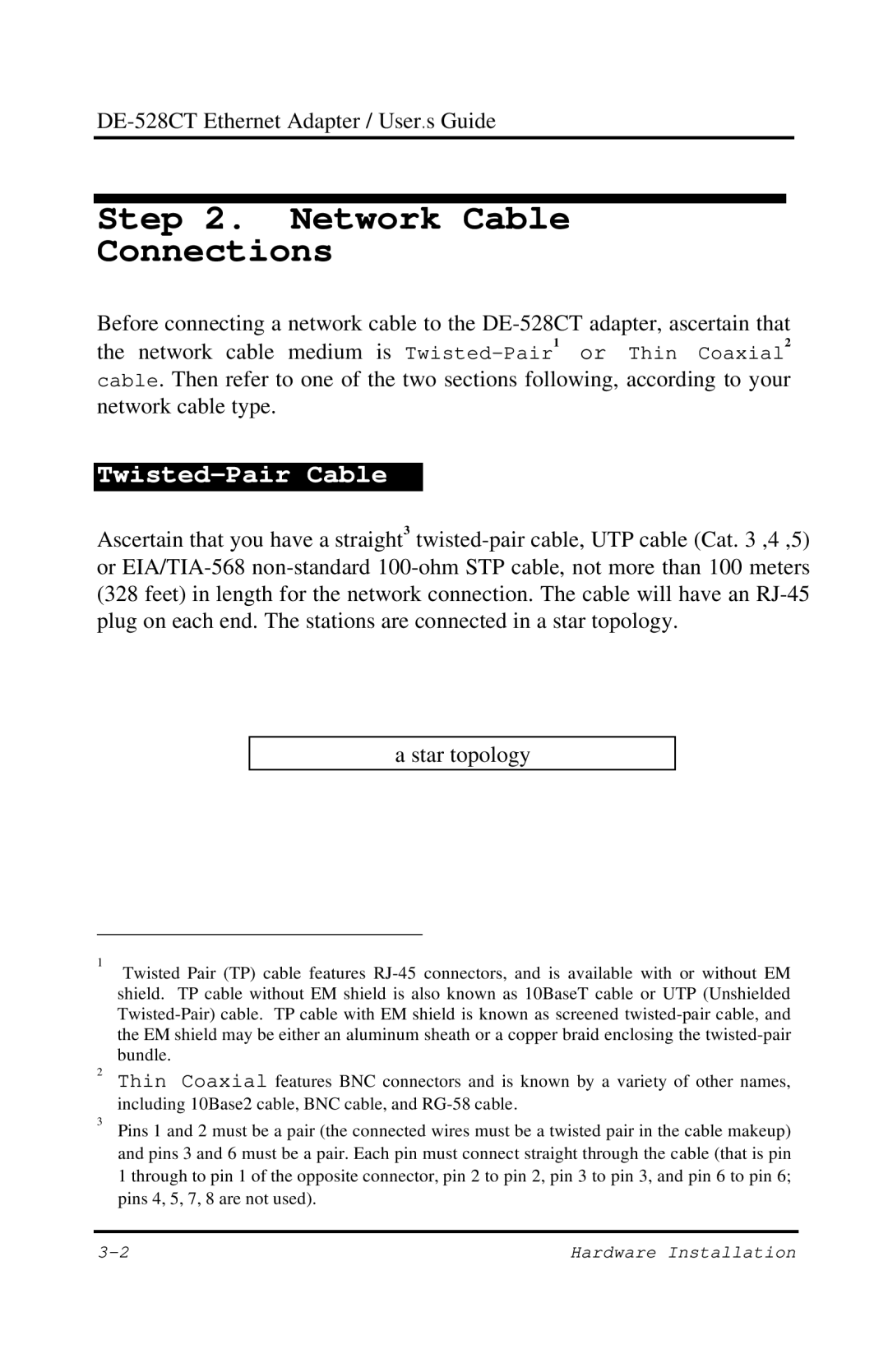
DE-528CT Ethernet Adapter / User s Guide
Step 2. Network Cable
Connections
Before connecting a network cable to the
Twisted-Pair Cable
Ascertain that you have a straight3
a star topology
1
Twisted Pair (TP) cable features
2Thin Coaxial features BNC connectors and is known by a variety of other names,
including 10Base2 cable, BNC cable, and
3
Pins 1 and 2 must be a pair (the connected wires must be a twisted pair in the cable makeup) and pins 3 and 6 must be a pair. Each pin must connect straight through the cable (that is pin 1 through to pin 1 of the opposite connector, pin 2 to pin 2, pin 3 to pin 3, and pin 6 to pin 6; pins 4, 5, 7, 8 are not used).
Hardware Installation |
